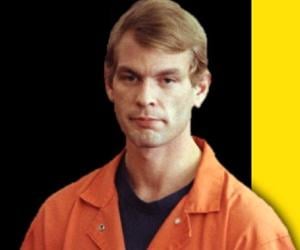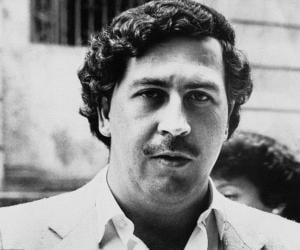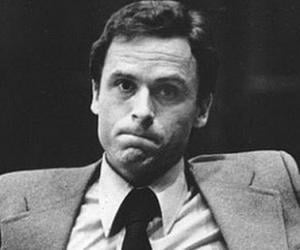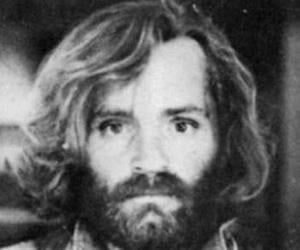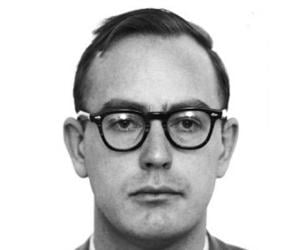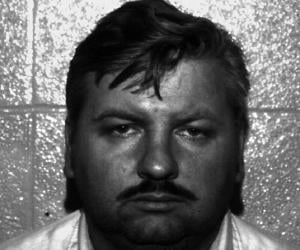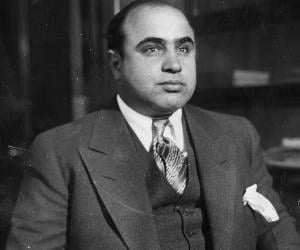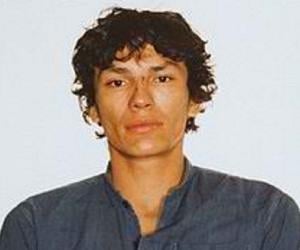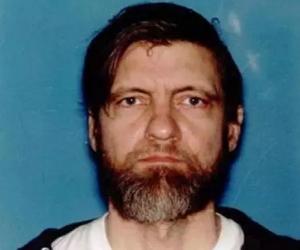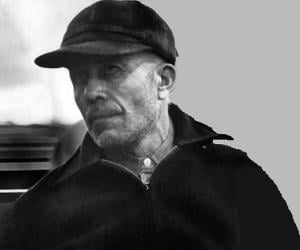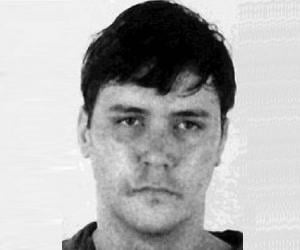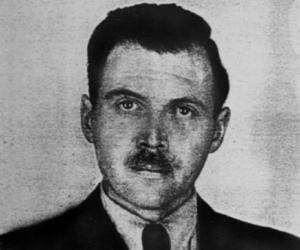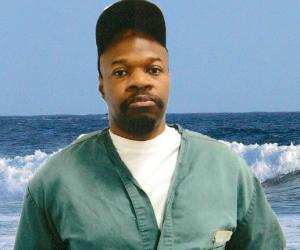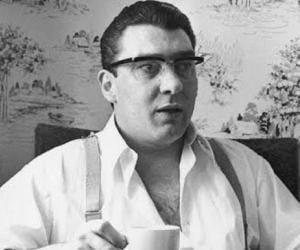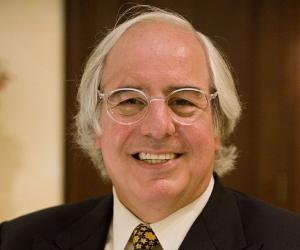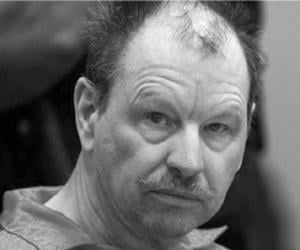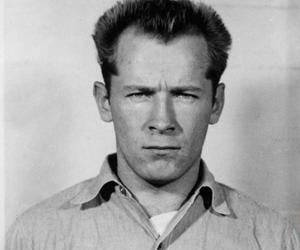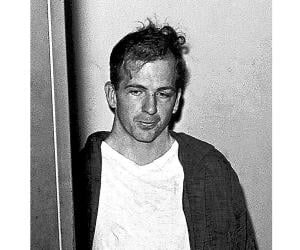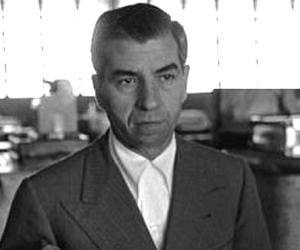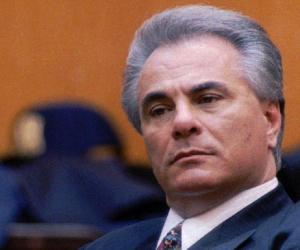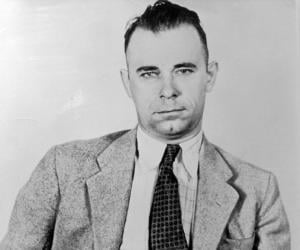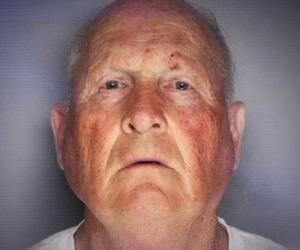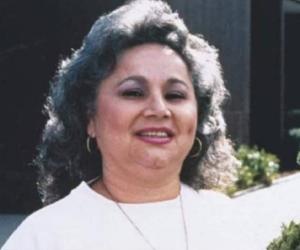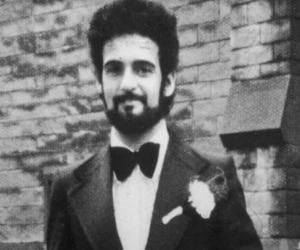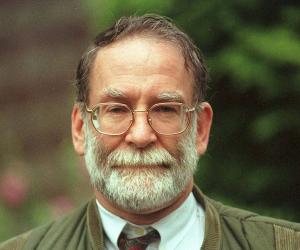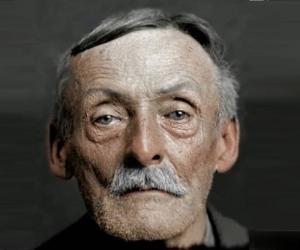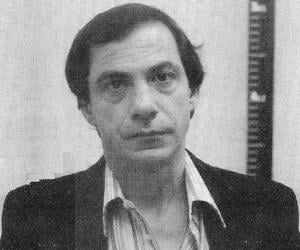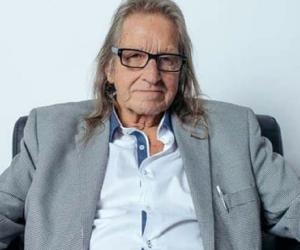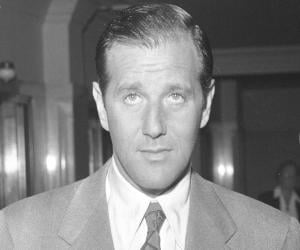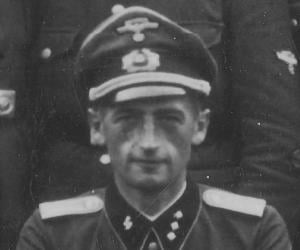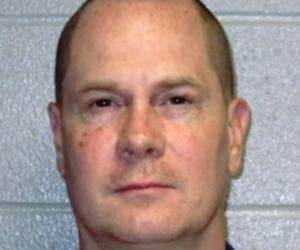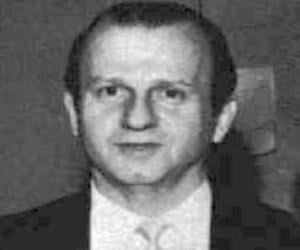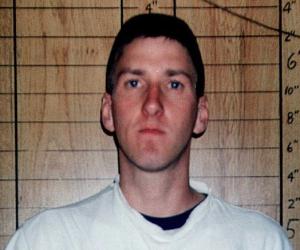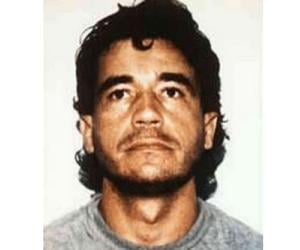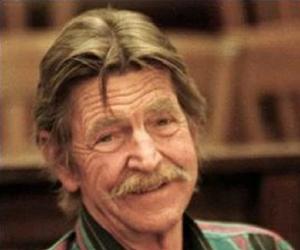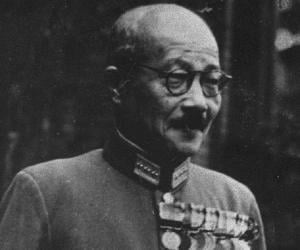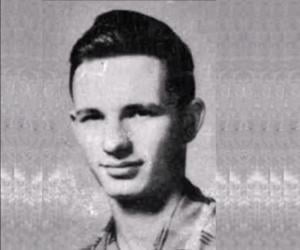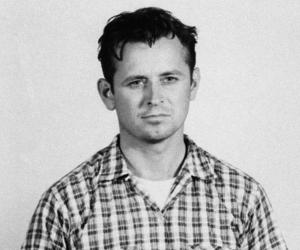One of the most notorious serial killers ever convicted in America, Jeffrey Dahmer terrorized the Milwaukee region in the 1980s. He targeted young men and boys, who he would lure to his house on some pretext before torturing and killing them. Finally arrested and imprisoned in the early 1990s, he was killed by a fellow inmate in 1994.
A notorious Colombian drug lord, Pablo Escobar was the founder and leader of the infamous Medellín Cartel. His drug cartel monopolized the cocaine trade into the United States and he became one of the wealthiest criminals ever in history. Dubbed "The King of Cocaine", he left behind a controversial legacy upon his death at the age of 44.
Ted Bundy was an American serial killer who kidnapped, raped and murdered a number of women and girls during the mid and late 1970s. He ultimately confessed to his crimes and was sentenced to death by electric chair. Later, the life of one of the most notorious criminals of the late 20th century inspired a number of books and movies.
Criminal and cult leader Charles Manson was the leader of the notorious Manson Family, a criminal cult that committed a series of murders in the late 1960s and early 1970s. He was arrested and imprisoned many times in his life and died in 2017 while serving his life sentence at California State Prison.
Zodiac Killer was an the unidentified American serial killer who spread terror in the northern California from late 1960s to early 1970s. In his letters to police and press, he claimed to have killed 37 people, out of which five were confirmed. Though he was never caught, his case inspired numerous books, films and television series including Clint Eastwood’s classic Dirty Harry.
John Wayne Gacy was a sex offender and a serial killer. He assaulted, raped and murdered at least 33 boys and young men in 1960s and 1970s. He tortured and killed all his victims inside his ranch house near Norridge, a village in Norwood Park. He was given death sentence in March 1980 and was executed in May 1994.
Al Capone, also known by the nickname Scarface, was one of the most notorious American gangsters who controlled the organised crime in Chicago between 1925 and 1931. He was known for violence and cruelty in eliminating rival gang members, the most infamous incident being the St. Valentine’s Day Massacre. His life inspired numerous books and films.
American serial killer, rapist, and burglar, Richard Ramirez terrorised the people of California, primarily Los Angeles, between 1984 and 1985 before being eventually captured by the police. The brutal criminal, also known as Night Stalker, was finally found guilty of 43 charges, including 13 murders and was sentenced to death. While on a death row, he died of cancer.
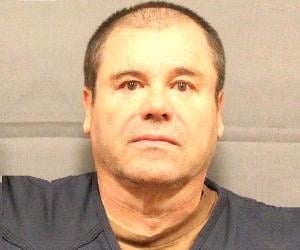
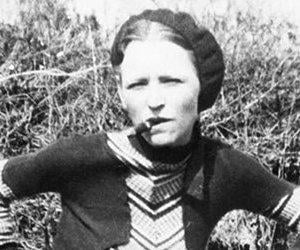
Best known as part of the legendary criminal couple Bonnie and Clyde, Bonnie Parker was infamous for her bank robberies with her partner Clyde Chestnut Barrow. They apparently murdered several policemen, too. Their crimes were romanticized in many movies including a 1967 film starring Faye Dunaway as Bonnie.
From a brilliant mathematician and an assistant professor at University of California, Theodore Kaczynski became the notorious American criminal—Unabomber—who was responsible for mail bombs that killed three people and injured 23 in eighteen years. He was eventually caught and sentenced to life imprisonment after his anti-technology essay sent to the media was recognised by his brother.
Popularly known as the Butcher of Plainfield, Ed Gein was a murderer and body snatcher. His spine-chilling life insane acts like exhuming corpses and making keepsakes and trophies from their skin and bones, inspired films like The Silence of the Lambs, The Texas Chain Saw Massacre, and Psycho.
Edmund Kemper is a serial killer, rapist and a necrophile. He was charged, convicted and sentenced to eight concurrent life sentences in 1973 for murdering ten people, including his paternal grandparents and mother. Most of his victims were female college students and hitchhikers, whom he lured into his vehicle and then killed them. He later decapitated and violated them.
Known as Angel of Death, Dr. Josef Mengele was the chief doctor of Auschwitz concentration camp and was responsible for killing thousands of Jews as well as torturing the prisoners mercilessly and conducting inhuman experiments on them. These included injecting them with chemicals and stitching twin children together. Despite his horrible crimes, the infamous Nazi doctor could never be captured.
Sexually and physically assaulted by her own grandfather during her childhood and teenage years, Aileen Wuornos took to prostitution to support herself. From becoming pregnant at age 14 to engaging in sexual activities in exchange for drugs, Aileen's early life played a major role in turning her into a serial killer. Her story eventually became quite famous in popular culture.
Christopher Scarver is a convicted murderer whose physical assault on Jesse Anderson and serial killer Jeffrey Dahmer at the Columbia Correctional Institution resulted in the death of both Anderson and Dahmer. Already sentenced to life for killing a man named Steve Lohman, Christopher Scarver received two more life sentences for killing Anderson and Dahmer.
Ronald Kray was a British criminal involved in organized crime in the East End of London in the 1950s and 1960s. Along with his twin brother, Reggie, he ran a gang that was notorious for committing murders, armed robberies, and arson among other criminal activities. The brothers were arrested in 1968 and sentenced to life imprisonment.
Frank Abagnale’s life story inspired the film Catch Me If You Can. He was a con man, imposter and did check forgery from the age 15 to 21. He assumed the identities of an airline pilot, a physician and a lawyer, among others. He was eventually arrested and after spending few years in prison started working for the federal government.
A convicted serial killer, David Berkowitz is believed to have killed six people and wounded seven others. He eluded the police for several months before being captured. He is currently serving six consecutive life sentences in the maximum-security prison, Shawangunk Correctional Facility. He was popularized by the media under the name “Son of Sam.”
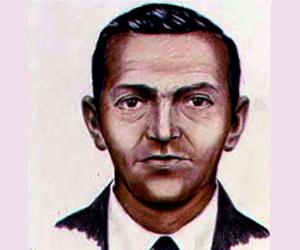
D. B. Cooper is a media epithet for an unidentified man, who in 1971 hijacked a Boeing aircraft for four parachutes and $200,000. On receiving the ransom, he released the passengers; but forced the pilot to fly towards Mexico City, jumping off the plane with the $200,000 somewhere between Seattle and Reno. Nothing has been found about him since then.
Whitey Bulger was an Irish-American FBI informant and organized crime boss. His arrest and subsequent trial exposed FBI handler John Connolly who had helped Bulger in return for the latter's information about the Patriarca crime family. Bulger's life and work inspired the 2015 film Black Mass. Many fictional TV and film characters have also been inspired by Whitey Bulger.
Lee Harvey Oswald was arrested for killing Dallas police officer J. D. Tippit. Further investigation suggested that he had murdered US President John F. Kennedy about 45 minutes before murdering Tippit. Though he denied the accusations, he was charged with the murder of Kennedy. While in police custody, Oswald was shot dead by Jack Ruby, a nightclub owner.
An Italian-born gangster, Lucky Luciano is regarded as the father of modern organized crime in the US; he served as the first boss of the Genovese crime family. He also played a key role in the rise of the National Crime Syndicate. His life and style inspired several films, television series, and books. His eponymous biopic was released in 1973.
John Gotti was the boss of the Gambino crime family, described as America's most powerful crime syndicate. It made millions per year from criminal activities like racketeering, loan sharking, drug trafficking, prostitution, extortion, pornography and illegal gambling. The FBI convicted him in 1992 and he was sentenced to life in prison without parole and later died of throat cancer.
A gangster of the Great Depression era, John Dillinger led a group known as the "Dillinger Gang". His gang was accused of robbing 24 banks and four police stations. He was a master evader and escaped the police’s attempts to capture him many times. He was finally shot to death by the authorities in 1934.
Joseph James DeAngelo is an American serial killer, rapist and burglar who carried out his crimes for many years in 1970s and 1980s and was finally captured by the police in 2018. The former police officer and auto mechanic, who was known by various names like Golden State Killer and Visalia Ransacker, was sentenced to life in prison in 2020.
English serial killer Peter Sutcliffe was dubbed the Yorkshire Ripper as he was likened to the infamous unidentified serial killer, Jack the Ripper, by the press. Convicted of killing 13 women and injuring nine other, Peter Sutcliffe was sentenced to life imprisonment. In 2000, ITV aired a crime drama miniseries based on Peter Sutcliffe's murders titled This Is Personal.
One of history’s most infamous serial killers, Harold Shipman was a British GP who is believed to have killed over 200 patients before being nabbed by the police. He was ultimately sentenced to life imprisonment for 15 murders but later committed suicide in prison. The case led to grave concerns about powers and the responsibilities of the Britain’s medical community.
Albert Fish was an American cannibal, child rapist, and serial killer. Fish confessed to three murders out of the five murders for which he was suspected. However, he claimed to have victimized about 100 people and boasted of having children in every state. His crimes and the subsequent execution by electric chair were dramatized in the film The Gray Man.
Karla Homolka raped and killed three minors along with her ex-husband Paul Bernardo. After their arrest, Bernardo was sentenced to life imprisonment, while Homolka served 12 years in prison following a plea bargain. Although she had claimed that she was an unwilling accomplice to the killings, a videotape that surfaced after the plea bargain suggested otherwise, resulting in public outrage.
Notorious mobster Bugsy Siegel held significant influence within the Italian-American Mafia and was regarded as a “celebrity gangster.” Good-looking and charismatic, he was an enigmatic figure. He played a key role in the development of the Las Vegas Strip. Noted for his prowess with guns, he met a grisly end when he was shot dead in 1947.
Jack Ruby was a Dallas nightclub owner who shot Lee Harvey Oswald, the alleged assassin of the 35th US President, John F Kennedy. Jack Ruby was charged with first-degree murder. He died of cancer in January 1967 in a hospital just after The Texas Court of Appeals had reversed his death sentence and was slated to grant him a new trial.
A Gulf War veteran, Timothy McVeigh made headlines after carrying out the Oklahoma City bombing that killed 168 people. He defended his actions saying that he wanted to inspire a revolution against what he considered a tyrannical government. The bombing remains the most malignant act of domestic terrorism in American history. He was executed by lethal injection in 2001.
Dennis Nilsen was a Scottish necrophile and serial killer who killed at least 12 boys and young men between 1978 and 1983. Also known as the Muswell Hill Murderer, Nilsen committed these crimes in London, England, where he would lure his victims into his house before strangulating them to death. He was convicted in 1983 of six counts of murder.
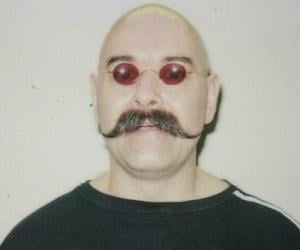
Former bare knuckle boxer Charles Salvador, also known as Charles Bronson, is also a highly infamous criminal, who was once convicted for an armed robbery. Known for his violent temper, he later penned several books, one of them on fitness. He is also a talented painter and poet.
German-Colombian drug kingpin Carlos Lehder, co-founder of the Medellín Cartel, which smuggled cocaine into the U.S., formed the Muerte a Secuestradores, to fight against the kidnappings of his cartel members. He escaped from the kidnappers but spent a 33-year sentence in the U.S., following which he was released.
Hideki Tojo headed the Imperial Japanese Army and was the Japanese minister of war, apart from being Japan’s prime minister from 1941 to 1944. His tenure witnessed the attack on Pearl Harbor. After Japan surrendered to the Allied Powers, Tojo was convicted of war crimes and sentenced to death.
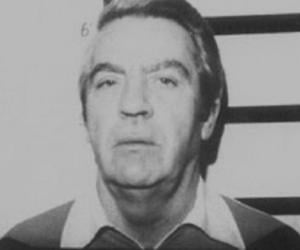
James Earl Ray was charged with assassinating Martin Luther King, Jr. in Memphis on April 4, 1968 and was convicted and sentenced to 99 years in prison in 1969. He served 29 years of his sentence before he died at the age of 70 from problems related to kidney disease and liver failure caused by hepatitis C.
